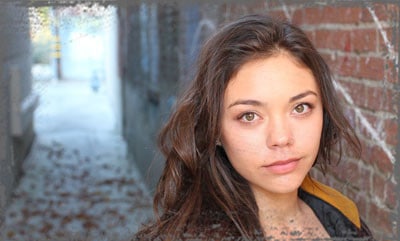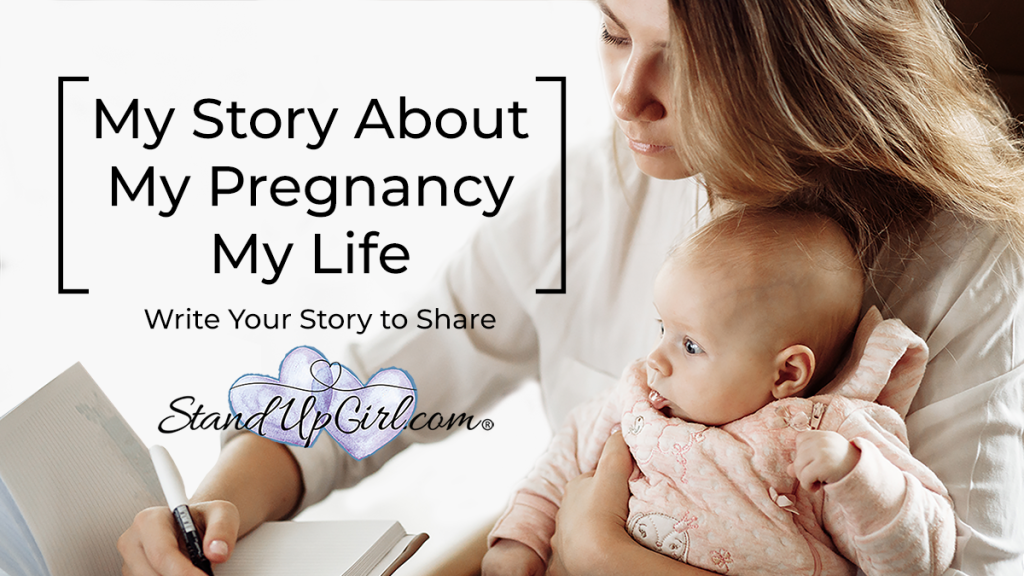
She’s revered as a trail-blazing feminist and author Alice Walker touched the lives of a generation of women. A champion of women’s rights, she has always argued that motherhood is a form of servitude. But one woman didn’t buy in to Alice’s beliefs – her daughter, Rebecca, 38. Here the writer describes what it was like to grow up as the daughter of a cultural icon, and why she feels so blessed to be the sort of woman 64-year-old Alice despises – a mother.
{This is an article that fits well with StandUpGirl’s collection of stories. It was published online by the Daily Mail of London, England. – Editor}
The other day I was vacuuming when my son came bounding into the room. ‘Mummy, Mummy, let me help,’ he cried. His little hands were grabbing me around the knees and his huge brown eyes were looking up at me. I was overwhelmed by a huge surge of happiness.
I love the way his head nestles in the crook of my neck. I love the way his face falls into a mask of eager concentration when I help him learn the alphabet. But most of all, I simply love hearing his little voice calling: ‘Mummy, Mummy.’
It reminds me of just how blessed I am. The truth is that I very nearly missed out on becoming a mother – thanks to being brought up by a rabid feminist who thought motherhood was about the worst thing that could happen to a woman.
You see, my mum taught me that children enslave women. I grew up believing that children are millstones around your neck, and the idea that motherhood can make you blissfully happy is a complete fairytale.
In fact, having a child has been the most rewarding experience of my life. Far from ‘enslaving’ me, three-and-a-half-year-old Tenzin has opened my world. My only regret is that I discovered the joys of motherhood so late – I have been trying for a second child for two years, but so far with no luck.
I was raised to believe that women need men like a fish needs a bicycle. But I strongly feel children need two parents and the thought of raising Tenzin without my partner, Glen, 52, would be terrifying.
As the child of divorced parents, I know only too well the painful consequences of being brought up in those circumstances. Feminism has much to answer for denigrating men and encouraging women to seek independence whatever the cost to their families.
My mother’s feminist principles coloured every aspect of my life. As a little girl, I wasn’t even allowed to play with dolls or stuffed toys in case they brought out a maternal instinct. It was drummed into me that being a mother, raising children and running a home were a form of slavery. Having a career, travelling the world and being independent were what really mattered according to her.
I love my mother very much, but I haven’t seen her or spoken to her since I became pregnant. She has never seen my son – her only grandchild. My crime? Daring to question her ideology.
Well, so be it. My mother may be revered by women around the world – goodness knows, many even have shrines to her. But I honestly believe it’s time to puncture the myth and to reveal what life was really like to grow up as a child of the feminist revolution.
My parents met and fell in love in Mississippi during the civil rights movement. Dad [Mel Leventhal], was the brilliant lawyer son of a Jewish family who had fled the Holocaust. Mum was the impoverished eighth child of sharecroppers from Georgia. When they married in 1967, inter-racial weddings were still illegal in some states.
My early childhood was very happy although my parents were terribly busy, encouraging me to grow up fast. I was only one when I was sent off to nursery school. I’m told they even made me walk down the street to the school.
Alice Walker believed so strongly that children enslaved their mothers she disowned her own daughter
When I was eight, my parents divorced. From then on I was shuttled between two worlds – my father’s very conservative, traditional, wealthy, white suburban community in New York, and my mother’s avant garde multi-racial community in California. I spent two years with each parent – a bizarre way of doing things.
Ironically, my mother regards herself as a hugely maternal woman. Believing that women are suppressed, she has campaigned for their rights around the world and set up organisations to aid women abandoned in Africa – offering herself up as a mother figure.
But, while she has taken care of daughters all over the world and is hugely revered for her public work and service, my childhood tells a very different story. I came very low down in her priorities – after work, political integrity, self-fulfilment, friendships, spiritual life, fame and travel.
My mother would always do what she wanted – for example taking off to Greece for two months in the summer, leaving me with relatives when I was a teenager. Is that independent, or just plain selfish?
I was 16 when I found a now-famous poem she wrote comparing me to various calamities that struck and impeded the lives of other women writers. Virginia Woolf was mentally ill and the Brontes died prematurely. My mother had me – a ‘delightful distraction’, but a calamity nevertheless. I found that a huge shock and very upsetting.
According to the strident feminist ideology of the Seventies, women were sisters first, and my mother chose to see me as a sister rather than a daughter. From the age of 13, I spent days at a time alone while my mother retreated to her writing studio – some 100 miles away. I was left with money to buy my own meals and lived on a diet of fast food.
A neighbour, not much older than me, was deputised to look after me. I never complained. I saw it as my job to protect my mother and never distract her from her writing. It never crossed my mind to say that I needed some time and attention from her.
When I was beaten up at school – accused of being a snob because I had lighter skin than my black classmates – I always told my mother that everything was fine, that I had won the fight. I didn’t want to worry her.
But the truth was I was very lonely and, with my mother’s knowledge, started having sex at 13. I guess it was a relief for my mother as it meant I was less demanding. And she felt that being sexually active was empowering for me because it meant I was in control of my body.
Now I simply cannot understand how she could have been so permissive. I barely want my son to leave the house on a play-date, let alone start sleeping around while barely out of junior school.
A good mother is attentive, sets boundaries and makes the world safe for her child. But my mother did none of those things.
Although I was on the Pill – something I had arranged at 13, visiting the doctor with my best friend – I fell pregnant at 14. I organised an abortion myself. Now I shudder at the memory. I was only a little girl. I don’t remember my mother being shocked or upset. She tried to be supportive, accompanying me with her boyfriend.
…the aftermath haunted me for decades. It ate away at my self-confidence and, until I had Tenzin, I was terrified that I’d never be able to have a baby because of what I had done to the child I had destroyed. For feminists to say that abortion carries no consequences is simply wrong.
As a child, I was terribly confused, because while I was being fed a strong feminist message, I actually yearned for a traditional mother. My father’s second wife, Judy, was a loving, maternal homemaker with five children she doted on.
There was always food in the fridge and she did all the things my mother didn’t, such as attending their school events, taking endless photos and telling her children at every opportunity how wonderful they were.
My mother was the polar opposite. She never came to a single school event, she didn’t buy me any clothes, she didn’t even help me buy my first bra – a friend was paid to go shopping with me. If I needed help with homework I asked my boyfriend’s mother.
Moving between the two homes was terrible. At my father’s home I felt much more taken care of. But, if I told my mother that I’d had a good time with Judy, she’d look bereft – making me feel I was choosing this white, privileged woman above her. I was made to feel that I had to choose one set of ideals above the other.
When I hit my 20s and first felt a longing to be a mother, I was totally confused. I could feel my biological clock ticking, but I felt if I listened to it, I would be betraying my mother and all she had taught me.
I tried to push it to the back of my mind, but over the next ten years the longing became more intense, and when I met Glen, a teacher, at a seminar five years ago, I knew I had found the man I wanted to have a baby with. Gentle, kind and hugely supportive, he is, as I knew he would be, the most wonderful father.
Although I knew what my mother felt about babies, I still hoped that when I told her I was pregnant, she would be excited for me.
Instead, when I called her one morning in the spring of 2004, while I was at one of her homes housesitting, and told her my news and that I’d never been happier, she went very quiet. All she could say was that she was shocked. Then she asked if I could check on her garden. I put the phone down and sobbed – she had deliberately withheld her approval with the intention of hurting me. What loving mother would do that?
Worse was to follow. My mother took umbrage at an interview in which I’d mentioned that my parents didn’t protect or look out for me. She sent me an e-mail, threatening to undermine my reputation as a writer. I couldn’t believe she could be so hurtful – particularly when I was pregnant.
Devastated, I asked her to apologise and acknowledge how much she’d hurt me over the years with neglect, withholding affection and resenting me for things I had no control over – the fact that I am mixed-race, that I have a wealthy, white, professional father and that I was born at all.
But she wouldn’t back down. Instead, she wrote me a letter saying that our relationship had been inconsequential for years and that she was no longer interested in being my mother. She even signed the letter with her first name, rather than ‘Mom’.
That was a month before Tenzin’s birth in December 2004, and I have had no contact with my mother since. She didn’t even get in touch when he was rushed into the special care baby unit after he was born suffering breathing difficulties.
And I have since heard that my mother has cut me out of her will in favour of one of my cousins. I feel terribly sad – my mother is missing such a great opportunity to be close to her family. But I’m also relieved. Unlike most mothers, mine has never taken any pride in my achievements. She has always had a strange competitiveness that led her to undermine me at almost every turn.
When I got into Yale – a huge achievement – she asked why on earth I wanted to be educated at such a male bastion. Whenever I published anything, she wanted to write her version – trying to eclipse mine. When I wrote my memoir, Black, White And Jewish, my mother insisted on publishing her version. She finds it impossible to step out of the limelight, which is extremely ironic in light of her view that all women are sisters and should support one another.
It’s been almost four years since I have had any contact with my mother, but it’s for the best – not only for my self-protection but for my son’s well-being. I’ve done all I can to be a loyal, loving daughter, but I can no longer have this poisonous relationship destroy my life.
I know many women are shocked by my views. They expect the daughter of Alice Walker to deliver a very different message. Yes, feminism has undoubtedly given women opportunities. It’s helped open the doors for us at schools, universities and in the workplace. But what about the problems it’s caused for my contemporaries?
What about the children?
The ease with which people can get divorced these days doesn’t take into account the toll on children. That’s all part of the unfinished business of feminism.
Then there is the issue of not having children. Even now, I meet women in their 30s who are ambivalent about having a family. They say things like: ‘I’d like a child. If it happens, it happens.’ I tell them: ‘Go home and get on with it because your window of opportunity is very small.’ As I know only too well.
Then I meet women in their 40s who are devastated because they spent two decades working on a PhD or becoming a partner in a law firm, and they missed out on having a family. Thanks to the feminist movement, they discounted their biological clocks. They’ve missed the opportunity and they’re bereft.
Feminism has betrayed an entire generation of women into childlessness. It is devastating.
But far from taking responsibility for any of this, the leaders of the women’s movement close ranks against anyone who dares to question them – as I have learned to my cost. I don’t want to hurt my mother, but I cannot stay silent. I believe feminism is an experiment, and all experiments need to be assessed on their results. Then, when you see huge mistakes have been paid, you need to make alterations.
I hope that my mother and I will be reconciled one day. Tenzin deserves to have a grandmother. But I am just so relieved that my viewpoint is no longer so utterly coloured by my mother’s.
I am my own woman and I have discovered what really matters – a happy family.
Baby Love: Choosing Motherhood After A Lifetime Of Ambivalence by Rebecca Walker was published by Souvenir Press on May 8, £15.
Interview by Tessa Cunningham



